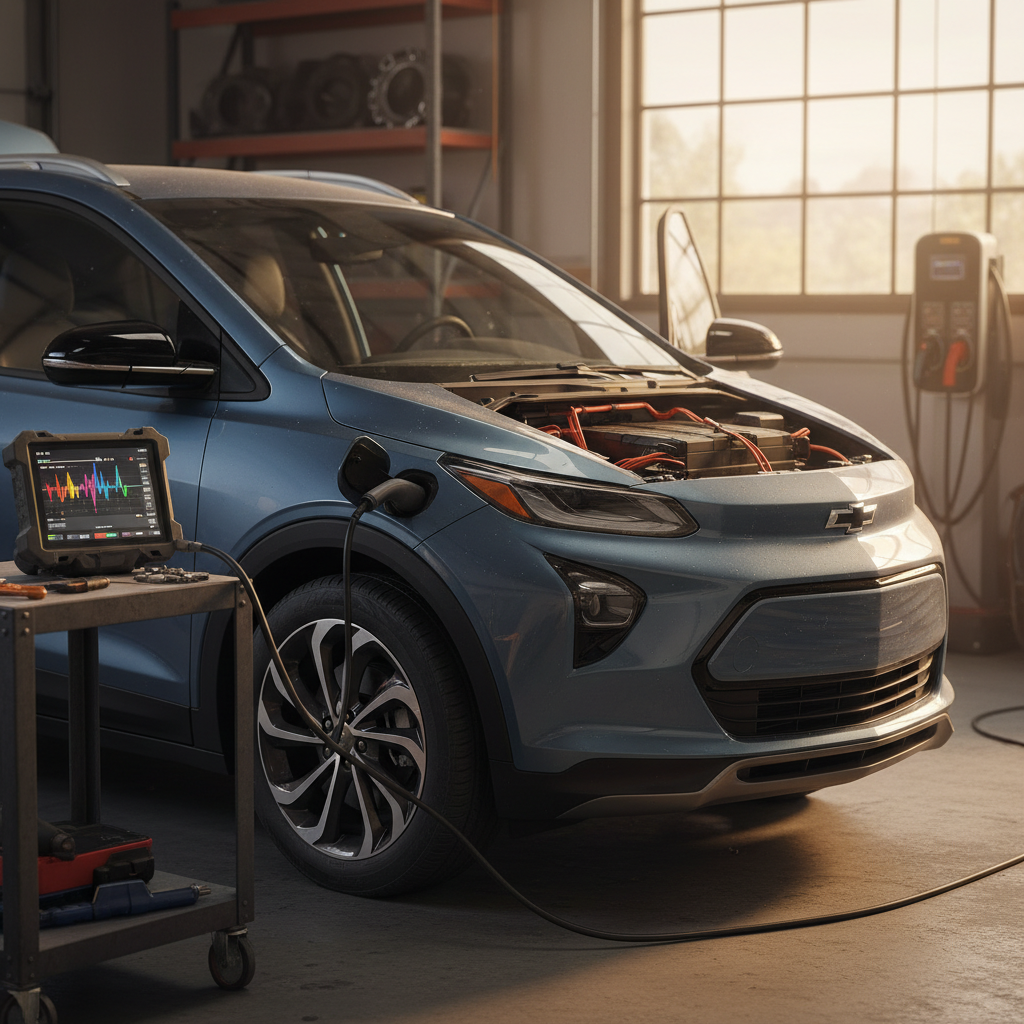You typed “hybrid auto repair near me” for a reason. Maybe your Prius just lit up the dash like a Christmas tree, your Honda hybrid is feeling sluggish, or you’re wondering what happens when a hybrid battery finally calls it quits. The good news: with the right shop, hybrid repair is more predictable and less scary than the internet horror stories suggest.
Hybrid repair in 2025 at a glance
Why “hybrid auto repair near me” matters more than ever
Hybrids aren’t a niche anymore. From Toyota Prius and Camry Hybrid to Honda CR‑V Hybrid, RAV4 Hybrid, plug‑in SUVs and even mild‑hybrid luxury models, there are millions of electrified vehicles on American roads. As these cars age out of their 8–10 year hybrid warranties, local hybrid repair options start to matter as much as fuel economy did the day you bought the car.
Hybrid ownership and repair by the numbers (2025)
Think long-term, not just next week
How hybrid auto repair is different from regular car service
What’s the same
- Hybrids still have brakes, suspension, tires, and fluids that wear out like any other car.
- Oil changes still matter on hybrid models with gasoline engines, though intervals are sometimes longer.
- Alignments, cabin filters, wiper blades, and AC service are business as usual at any competent shop.
What’s different
- High‑voltage systems (up to 600+ volts) require special tools, training, and safety procedures.
- Technicians must understand inverters, DC‑DC converters, battery cooling systems, and software.
- Diagnostics rely heavily on factory scan tools and service information, not just generic OBD scanners.
Why you don’t want a guessing game

Common hybrid repairs and what they cost in 2025
When people search for “hybrid auto repair near me”, they’re often worried about the big-ticket items, especially the traction battery. In reality, many hybrids go a decade or more without major issues. Still, you should know what’s realistic in today’s market.
Typical 2025 hybrid repair cost ranges (U.S.)
Approximate parts + labor ranges for common hybrid repairs at independent hybrid specialists. Dealer prices often run higher.
| Repair | Standard Hybrid (Prius, Camry, Accord) | Plug‑in Hybrid SUV | Mild Hybrid (MHEV) |
|---|---|---|---|
| High‑voltage traction battery | $2,400–$4,500 (independent) | $3,500–$8,000 | $1,200–$2,000 |
| Hybrid battery reconditioning | $1,200–$1,800 | $1,500–$2,400 | Less common |
| Inverter or DC‑DC converter | $1,000–$3,000 | $1,500–$3,500 | $800–$2,000 |
| Electric water pump / cooling component | $600–$1,200 | $800–$1,500 | $500–$1,000 |
| HV battery fan / cooling service | $300–$800 | $400–$900 | Rare |
| Routine brake service | $250–$700 | $250–$700 | $250–$700 |
Actual quotes vary by model, region, and whether you choose new, refurbished, or used parts.
For popular Honda hybrids, many drivers now see installed battery replacement quotes in the $2,400–$4,800 range at specialists, depending on generation and pack type. Toyota hybrids often come in a bit lower when you factor in refurbished packs and a robust aftermarket. Mild hybrids, common in European and luxury brands, typically use smaller packs; recent surveys peg their battery costs around $1,500 on average before labor.
Don’t DIY high‑voltage repairs
Dealer vs independent hybrid shop vs EV specialist
Where should you take your hybrid for repair?
Each option has its place, your job is to pick the right one for your situation.
Dealer service department
- Best for warranty work and complex, brand‑specific issues.
- Factory tools, software updates, and technical service bulletins.
- Usually the most expensive hourly rate.
Independent hybrid specialist
- Focuses on Prius, Camry, Accord, CR‑V and other common hybrids.
- Often 15–30% less than dealer rates with similar expertise.
- Good source for refurbished or used battery packs.
EV & hybrid specialty shop
- Strong with both full EVs and plug‑ins.
- Ideal if you also own a pure EV or plan to upgrade.
- Frequently up‑to‑date on high‑voltage safety and diagnostics.
When the dealer is worth it
How to actually find quality hybrid auto repair near you
Instead of just clicking the first ad for “hybrid auto repair near me”, slow down and vet your options. Here’s a simple process you can follow this week.
Step-by-step: finding the right hybrid repair shop near you
1. Search smart, not just close
Use phrases like “hybrid repair shop,” “Prius specialist,” or “Toyota hybrid mechanic” along with your city. A shop 10 miles away that knows hybrids is better than a generic place across the street.
2. Look for certifications (ASE & hybrid)
Check the shop’s website or lobby for ASE certifications, especially the <strong>ASE L3 Advanced Hybrid/Electric Specialist</strong> credential. That tells you at least one tech is trained on high‑voltage systems.
3. Check reviews for hybrid-specific stories
Scan reviews for mentions of your model, Prius, Camry Hybrid, Accord Hybrid, RAV4, etc., and repairs beyond basic oil changes. Look for consistent praise on diagnostics and communication.
4. Ask what scan tools and information they use
A serious hybrid shop can tell you which factory‑level scan tools or subscriptions they use and what brands they specialize in. Vague answers are a red flag.
5. Compare written estimates, not phone guesses
Once you’ve narrowed it down, get written estimates that break out diagnostics, parts, labor, shop fees, and any core charges, especially for battery work.
6. Confirm warranties on parts and labor
For big jobs like traction batteries, you should see clear warranty terms in writing, often 1–3 years on refurbished packs and longer on new OEM units.
Key questions to ask any hybrid mechanic
- How many hybrids like mine have you worked on in the past year?
- Do you have ASE L3 or factory hybrid training for my brand?
- What scan tools and service information do you use on hybrids?
- Are the parts you’re quoting new OEM, aftermarket, refurbished, or used?
- What warranty do I get on the battery, inverter, or other major components, and does it include labor?
- Will you provide a printed or emailed copy of the diagnostic report and codes?
Bring your own data
Warning signs your hybrid needs professional attention
Don’t ignore these hybrid warning signs
Catching problems early often turns a four‑figure repair into a three‑figure one.
Dashboard warnings
- “Check Hybrid System” or similar message.
- ABS, brake, or traction control lights staying on.
- State‑of‑charge gauge behaving erratically.
Overheating or cooling alerts
- Engine running hot more often.
- Hybrid system shutting down under load.
- Warning about coolant or inverter temperature.
Driving feel changes
- Jerky transitions between engine and electric drive.
- Noticeable loss of power or poor fuel economy.
- Unusual noises from the rear where the battery sits.
Strange smells or fan noise
- Strong chemical or “hot electronics” smell.
- Battery cooling fan running loudly all the time.
- Dust, pet hair, or debris near battery vents.
If the car shuts the hybrid system down
Smart ways to save money on hybrid repairs
Use the dealer’s warranty first
If your hybrid is under the 8–10 year / 100,000–150,000‑mile hybrid component warranty (check your manual), start with the dealer. Many traction battery replacements cost owners nothing during this window.
Consider refurbished batteries wisely
For older cars, a properly refurbished pack can cost 30–50% less than new. Look for reputable rebuilders and insist on a written warranty of at least 1–2 years.
Let independents handle non‑hybrid work
Routine work, brakes, tires, suspension, fluids, can go to any competent shop, often at a lower hourly rate than the dealer.
Avoid “parts darts” diagnostics
If a shop wants to throw parts at the car without clear testing and documentation, walk away. Paying once for careful diagnostics is cheaper than paying three times for guesses.
Budgeting tip
Hybrid repair costs and buying a used hybrid or EV
If you’re shopping for a used Prius, Accord Hybrid, or even stepping up to a full EV, understanding future repair costs is part of being a smart buyer. A cheap hybrid with no maintenance history can easily erase your fuel savings with one big repair.
Where Recharged fits in
Even if you’re staying in the hybrid world for now, you can use the same mindset: insist on service records, ask about any hybrid‑system work, and factor realistic future repair ranges, especially battery, inverter, and cooling components, into your budget.
Hybrid auto repair FAQs
Frequently asked questions about hybrid auto repair near you
Bottom line: choosing the right hybrid repair shop
Searching for “hybrid auto repair near me” is really about protecting your investment and your peace of mind. Hybrids are reliable machines, but when they do need attention, the stakes are higher than a simple 12‑volt battery swap. Take the time to find a shop with real hybrid experience, clear communication, and strong warranties so you’re paying for expertise, not guesswork.
If you’re also thinking about moving from a hybrid to a full EV, or adding an EV to your driveway, Recharged can help you understand long‑term battery health, fair pricing, and what to expect from ownership. Whether you stay with a hybrid or make the jump to electric, the right information, and the right service partners, will keep you enjoying quiet, efficient miles for years to come.



